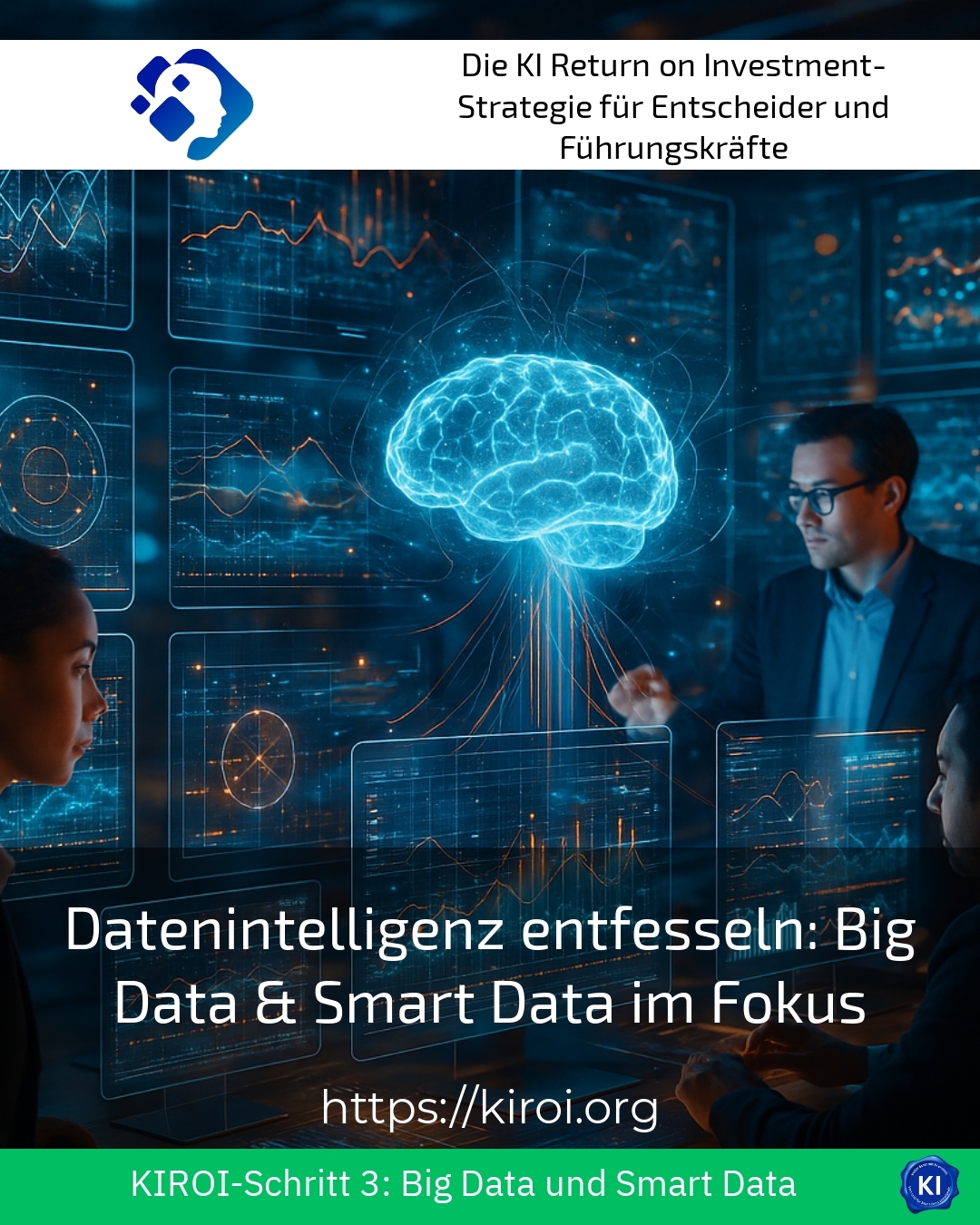At a time when companies are confronted with huge amounts of data on a daily basis, the ability to utilise this data in a meaningful way is becoming increasingly important. Data intelligence describes precisely this expertise: extracting valuable, reliable and contextualised information from unstructured raw data. This intelligent data supports decision-making processes, increases efficiency and helps to secure competitive advantages.
Big data: the flood of data as a raw material
Big data refers to the accumulation of extremely large and complex amounts of data. These are generated at high speed and in a variety of formats - from sensor data in production to customer interactions in online retail. The challenge lies in filtering out the essentials from this flood of information.
An example from industry: sensors in production plants continuously supply data on machine statuses. A logistics company collects freight data from all over the world. Portfolios and market movements are also constantly monitored in the financial sector. All this data is valuable, but it is only when it is analysed in a targeted manner that real benefits are created.
Without intelligent filtering, this data often remains unused. The sheer mass of information rarely brings direct benefits. This is where data intelligence comes in: it transforms big data into tangible insights.
Smart data: intelligent further processing
Smart data are the results of intelligent data analysis. It is created when algorithms and AI methods are used to extract relevant, high-quality and reliable information from big data. This data can be used directly and provides specific recommendations for action.
An example from marketing: an agency analyses customer behaviour and automatically adapts campaigns. Scattering losses are minimised and the target group approach becomes more precise. In the financial sector, portfolio positions are managed dynamically based on current market data and AI forecasts. Intelligent data analyses also help to individually optimise treatment plans in the healthcare sector.
Smart data is more targeted and precise than big data. It provides usable insights in real time and enables greater personalisation. Companies benefit from better decisions and more efficient processes.
Data intelligence in practice
Data intelligence can be seen in many areas. In production, smart algorithms trigger maintenance warnings before machines actually break down. This saves time and money and increases the availability of systems. In logistics, supply chains are optimised to reduce costs and increase customer satisfaction. In retail, customer data is analysed in order to create personalised offers and strengthen customer loyalty.
Another example: an insurance company uses data intelligence to recognise fraud attempts at an early stage. By analysing behavioural patterns, suspicious transactions can be identified and specifically checked. Intelligent data analyses also help in the education sector to support individual learning processes and measure the success of educational measures.
Data intelligence is therefore not an abstract concept, but a practical tool that brings tangible benefits in many industries.
Data intelligence as a strategic success factor
Companies that use data intelligence in a targeted manner can make faster and better decisions. They recognise trends at an early stage, optimise their processes and react flexibly to changes. Data intelligence thus becomes a strategic success factor.
A practical example: a manufacturer of industrial plants uses sensor data to optimise maintenance cycles. This reduces unplanned downtimes and increases productivity. A financial services provider analyses market movements and customer needs in order to react to changes in a targeted manner. A retailer continuously adapts its offers to the needs of its customers and thus increases customer satisfaction.
Data intelligence is therefore not just a technical issue, but a central component of modern corporate strategies.
Best practices and success factors
There are some best practices for the successful use of data intelligence. Companies should systematically record their data sources and ensure the quality of the data. Analyses should be carried out continuously and the results integrated into decision-making processes. The integration of AI methods and algorithms can further increase the efficiency and accuracy of analyses.
Another success factor is interdisciplinary collaboration. Data intelligence requires not only technical expertise, but also a deep understanding of business processes and customer needs.
The following examples show how data intelligence is used in practice:
BEST PRACTICE with one customer (name hidden due to NDA contract) A medium-sized company from the manufacturing sector used data intelligence to increase the efficiency of its production facilities. By continuously analysing sensor data, maintenance requirements could be identified at an early stage and planned in a targeted manner. This reduced unplanned downtimes by 30 per cent and increased productivity. Employees benefited from better work organisation and the advantages of predictive maintenance. The company was able to significantly improve its competitiveness and win new customers.
Another example: a logistics company used data intelligence to optimise its supply chains. By analysing freight data and weather information, delivery times could be shortened and customer satisfaction increased. In the healthcare sector, too, intelligent data analyses helped to optimise treatment plans on an individual basis and measure the success of therapies.
My analysis
Data intelligence is a central component of modern corporate strategies. It makes it possible to gain valuable insights from large amounts of data and make well-founded decisions. Companies that utilise data intelligence in a targeted manner can increase their efficiency, improve their competitiveness and tap into new opportunities. Practical application shows that data intelligence brings tangible benefits in many industries and is a strategic success factor.
Further links from the text above:
Data intelligence: Big & smart data for better decision-making
Big data vs. smart data: is more always better?
Big data explained simply: definition and significance for the professional world
Smart data: definition, application and difference to big data
Smart + Big Data | Artificial Intelligence
Unleashing data intelligence: Big Data & Smart Data for Business
For more information and if you have any questions, please contact Contact us or read more blog posts on the topic Artificial intelligence here.















